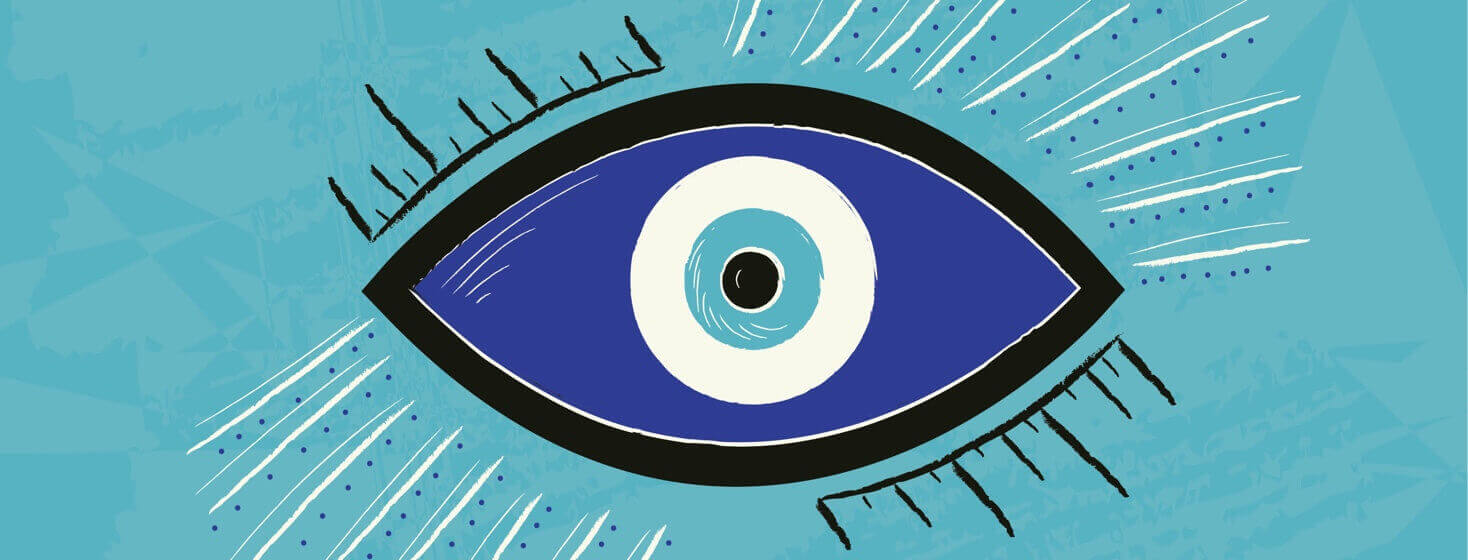It Takes a Lot of Work to Ward Off Evil Spirits
On Jan. 31st, 2009, I had my fourth bone marrow transplant.
Do the easy math, and you’ll see that Jan 31st, 2019, marked 10 years from that momentous date.
But you wouldn't hear me saying that on Jan. 31st when I celebrated my 10th birthday, or re-birthday, as it’s called in stem cell transplant world.
I’m too superstitious to say it straight out. I don’t want to jinx myself.
Superstitions and cancer anniversaries
It might be OK if I added the Yiddish phrase kineahora – “no evil eye” – to protect myself. (It’s pronounced KINE-AHORA.)
“I’m looking forward to an important cancer anniversary, kineahora.”
The concept dates back centuries. According to a blog post on The Word Mavens site, “The concern was that bragging about one’s good fortune would anger an envious human being or the random dybbuk, golem or goblin who might be lurking about, waiting to cast their evil eye on you.”1
You could also spit three times and form the sounds toi, toi, toi or a variation such as pu pu pu (or poo poo poo). For sanitation’s sake, you could just make the sounds.2
The spitting comes from the days when people thought saliva had medicinal properties.2
I thought this was mainly Jewish or Yiddish, but then I read that people also do it (or say it, at least) before operas.2
You could also just do your basic knocking on wood.
Magical thinking
There’s another term for this kind of belief. It’s called magical thinking.
In an article in Psychology Today, Alex Lickerman M.D., explains,
“Magical thinking is defined as believing that one event happens as a result of another without a plausible link of causation.” If it causes behavioral problems, it obviously needs attention. The kind I'm talking about doesn't go that far.3
My social worker once told me about a woman who got a good health report while wearing a certain pair of earrings. She wouldn’t take the earrings off because she feared that if she did, her next report wouldn’t be so good.
I have no idea what happened to her. But I know it didn’t work out so well for me when I tried to fool fate into leaving me alone after my first stem cell transplant.
My doctor had told me that after two years in remission, you can break out the Champagne. Afraid that a big celebration might invite a smackdown from the universe, I had coffee with friends instead.
Unfortunately, I relapsed after three and a half years. I had to start the process again. So laying low didn’t actually help. Still, I have kept at it.
My doctor said that after five years, you can use the word “cure.” Five years after my fourth transplant, I went out to dinner and had a “birthday” party with my children. It included a cake with a numeral 5 candle on it. They sang happy birthday and I blew out the candle. But I never said that I was cured.
I still don’t.
Avoiding the "C" word
I say, “They say I’m cured,” or, “They say I’m at no more risk of getting leukemia than the general public is.”
Superstition and magical thinking aside, my journalism training also comes into play when I write about upcoming events.
If a press release came into the newspaper with wording along the lines of, “So and so will meet on Friday to discuss the best thing since sliced bread,” I would change it to, “So and so are expected to meet Friday…” Or, “So and so plan to meet Friday…”
In other words, you don’t KNOW that they’ll meet Friday. You’re not going to tell readers that they absolutely will do it.
So…
On Jan. 31st – the date that my generous donor’s stem cells flowed through my body to give me another chance at life – I hope to celebrate my 10th re-birthday.
Kineahora toi toi toi.

Join the conversation